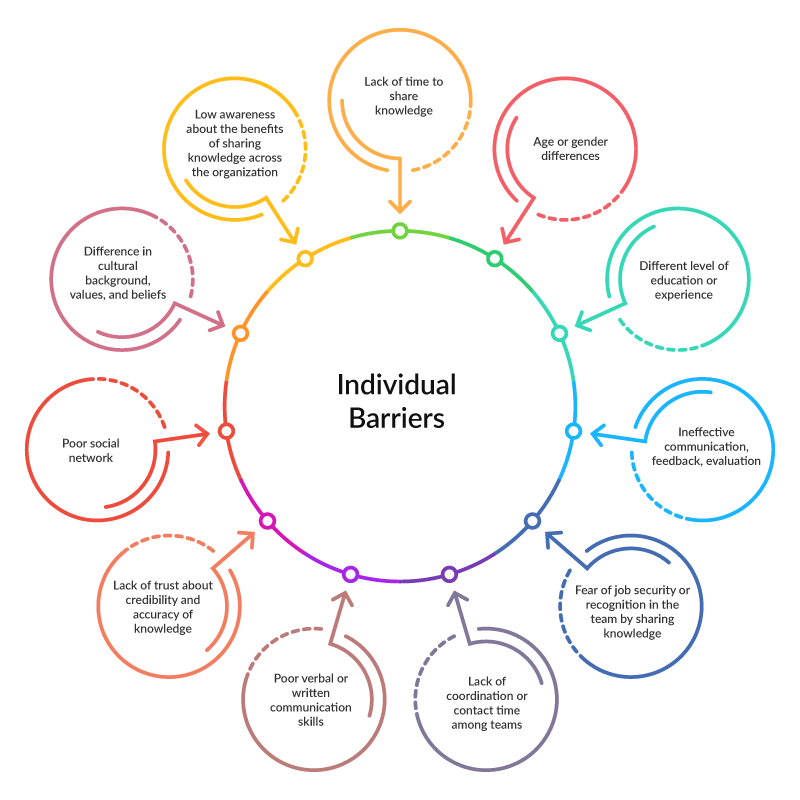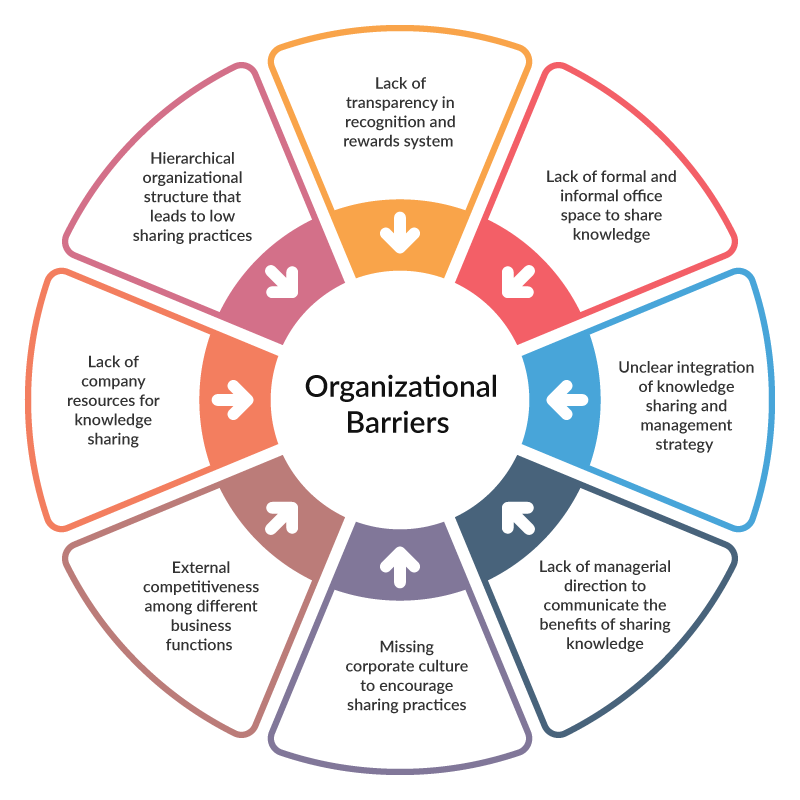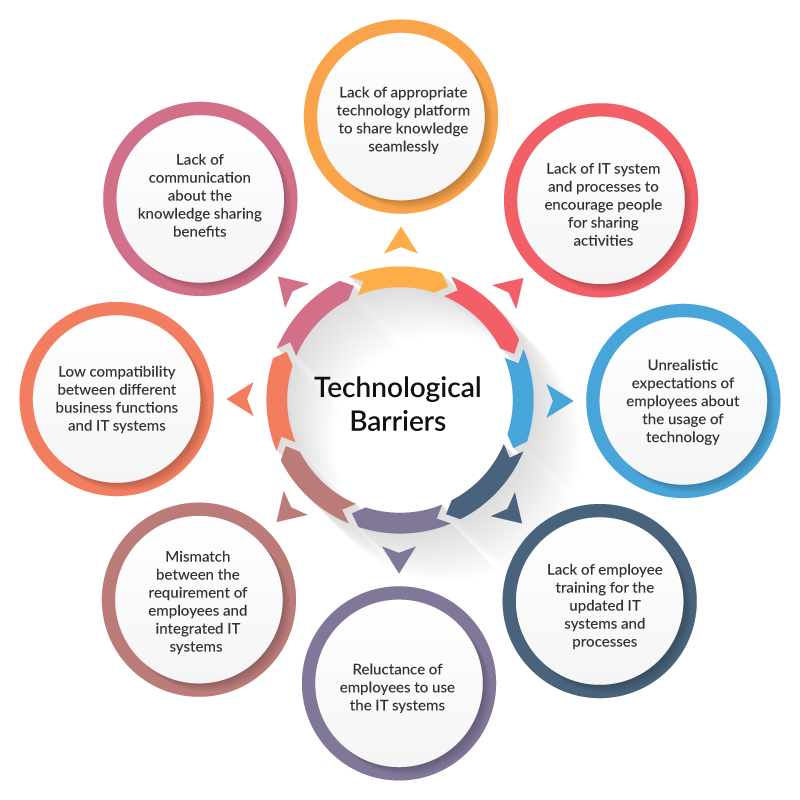Table of Contents
- What is knowledge management and why is it important
- Why do employees fail to share knowledge and practice knowledge management in organizations?
- Eliminate Knowledge Sharing Barriers with a Modern Digital Workplace
- Best Practices of Knowledge Management
Step into a smarter digital workplace
Get a Free Product Tour“Did you know that fortune 500 companies lose approximately $31.5 billion every year by failing to share knowledge?”
– According to International Data Corporation
What type of data do corporates deal with? What is corporate knowledge? It is a combination of tribal, tacit, documented, and undocumented knowledge flowing in the organization. It provides the knowledge and information through which an organization functions. Today, employees are bombarded with an endless amount of information and a constant data stream every day. This data overhaul has made knowledge management extremely important for organizations.
We have all heard the old chestnut that “Knowledge is Power” and realize this truth in our everyday personal and professional lives. Whether you are a medium or large-sized company, a knowledge base is an outstanding resource to centralize the company processes and standard operating procedures.
Let’s understand the concept of the knowledge base first.
A knowledge base is a curated collection of data on specific subject areas to make the information usable, accessible, and beneficial for employees as well as for the whole organization. It typically refers to the information stored in the system or software within the modern digital workplace. A knowledge base encompasses a variety of content like:
- Product demonstrations
- Frequently asked questions
- Introductory articles
- Process guides
- Standard operating procedures
- Glossaries
- Video tutorials
What is knowledge management and why is it important
Knowledge Management is a deliberate process of defining, organizing, retaining, and sharing the experience and knowledge of employees in an organization. Below mentioned are few reasons why knowledge management is important.
1. Improves employee productivity
A McKinsey report indicates that employees spend over 20 percent of their work time to search for relevant information. They need to search through many unorganized repositories and cluttered inboxes. A knowledge base provides a central platform to make the information easily searchable and accessible. Know how your enterprise content management can be simplified and achieve meaningful business outcomes.
2. Connect remote employees
No matter where your employees are working from, they can access the required information and do their jobs seamlessly. A knowledge base connects remote employees, provide them access to corporate knowledge from anywhere, at any time. With the COVID-19 driven remote working practices, there is no better time to encourage employees to access and share knowledge using an effective knowledge base.
3. Prevent knowledge loss
Employees leave the organizations and there is always a risk of losing the valuable knowledge acquired in their time with the organization. And ultimately, it creates multiple problems for the new employees to pick up the right information at the right time. This knowledge loss can be prevented with a knowledge base to handle the knowledge transfer effectively. Also, the knowledge base allows you to share the content in different formats like text, audio, video, etc. It is easier for the employees to preserve knowledge in the most convenient manner.
4. 24/7 self-service
The majority of people prefer to look for their answers on their own before reaching out for help. A knowledge base presents centralized information in different formats with 24/7 access. It provides the best opportunity of attaining knowledge in a way the employees can absorb best.
5. Encourage employee engagement and collaboration
A study conducted by Harvard Business Review indicates that less than 25% of the organizations are confident that their employees are highly engaged within the organization. A knowledge base provides seamless access to corporate knowledge and empowers employee engagement. Also, the employees feel recognized and appreciated that they are being kept in the loop and more likely to feel invested in the overall success of the organization.
6. Proactive problem-solving
In the fast-changing business environment, it is important to handle everyday problems proactively. A knowledge base brings enhanced value to the customers with the readily available content like interactive tutorials, step-by-step guides, etc. The right information empowers your support team and improves every interaction with the customers. Also, you can cut down on customer support expenses to improve customer satisfaction.
7. Prevent errors and reduce business costs
You can save a lot of valuable time and money by reducing the duplicate human efforts and avoiding human errors. It allows the employees to work more efficiently, save time for productive work, spend less time searching for relevant information, and waiting for responses from key people.
Why do employees fail to share knowledge and practice knowledge management in organizations?
Managing the information, collecting it from different sources, and organizing everything in a useful form – is called “Knowledge Management”. This process of knowledge management has several benefits for employee productivity and the bottom line of business. But it is very difficult for organizations to persuade employees to practice knowledge management at work.
It has become clear that the knowledge management skills and technology required by the organizations is lacking even in this digital era. Unfortunately, one-third of companies rate their knowledge sharing culture below 5 on the rating scale of 10.
Here are some common barriers to knowledge sharing practices in organizations.



Eliminate Knowledge Sharing Barriers with a Modern Digital Workplace
Investing in a modern digital workplace can be an incredible tool for the long-term success of your organization. Instead of looking for disparate systems to capture, organize, and share knowledge, you can create an integrated knowledge base system. And to do this successfully, you need to ensure that every employee is using the knowledge management tool and leveraging its benefits completely.
Best Practices of Knowledge Management
Knowledge Management is all about knowledge collection, its creation and reuse. Here are the best practices one can follow to overcome challenges with digital enterprise document management system:
- Understand your knowledge management requirements well
- Implementation as per IT specifications
- Encourage employees with reward programs
- Introduce knowledge ownership concept
- Delegate KM roles
- Refresh Knowledge bank post every information exchange event
- Push Knowledge exchange policies
BizPortals 365 offers a connected and comprehensive digital workplace that empowers your employees and business. Schedule a DEMO to get actionable insights about the essential elements of a digital workplace and ways to leverage its enormous benefits for your organization.
Table of Contents
- What is knowledge management and why is it important
- Why do employees fail to share knowledge and practice knowledge management in organizations?
- Eliminate Knowledge Sharing Barriers with a Modern Digital Workplace
- Best Practices of Knowledge Management
Step into a smarter digital workplace
Get a Free Product Tour
